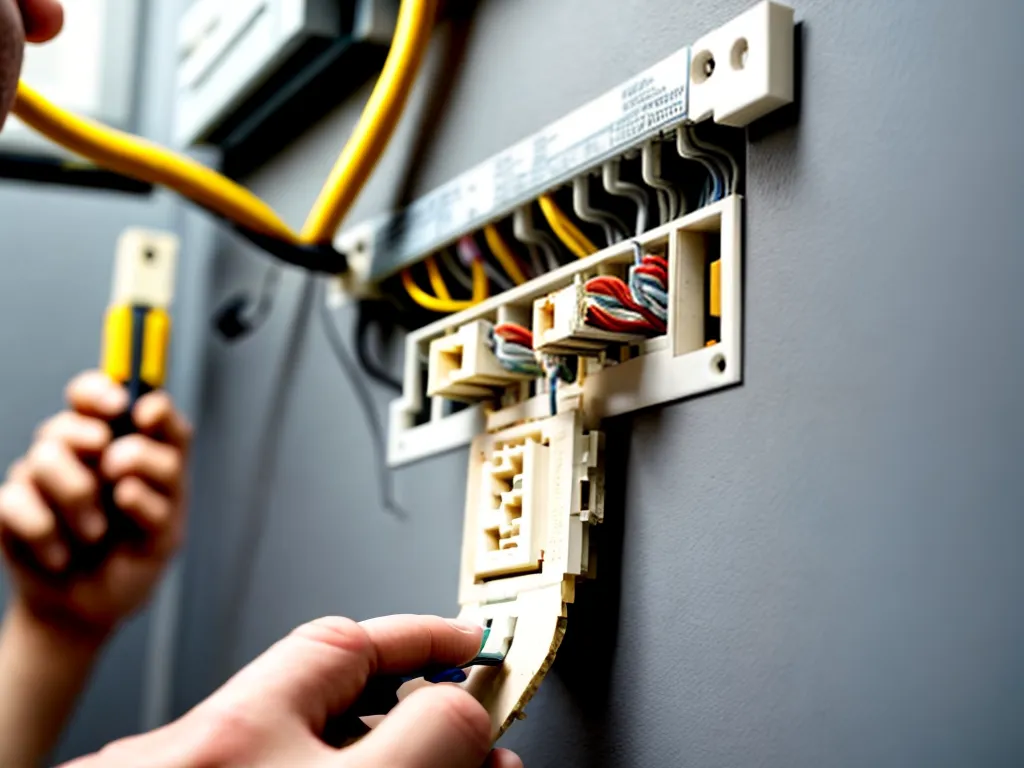
The Dangers of DIY Home Wiring You've Never Heard Of
I've always been a hands-on type of person, eager to take on home improvement projects and do things myself. So when it came time to upgrade some of the wiring in my house, I thought, how hard could it be? Well, let me tell you - DIY electrical work is extremely dangerous if you don't know what you'm doing. As I learned the hard way, there are some real risks involved that I had never even considered.
Understanding Home Electrical Systems
Before I get into the specific dangers, it's important to understand some basics about home electrical systems.
The Main Service Panel
The main service panel is the central hub that connects your home to the main power supply from the utility company. This panel contains circuit breakers that regulate power to the various circuits in your home. As a DIYer, I never dreamed of touching the main panel - I knew that was a job for a professional electrician.
Wiring Circuits
From the main service panel, wiring circuits branch out to supply power to lights, outlets, and appliances throughout the home. Most modern homes have 120-volt circuits, but larger appliances like ovens, dryers, and air conditioners use 240-volt circuits. The wiring in these circuits needs to be properly sized to handle the electric load.
Grounding and Neutral Wires
In addition to the hot wires that carry power, circuits also have neutral and grounding wires. The neutral wire completes the circuit loop, while the grounding wire helps prevent shocks and electrical fires.
Hidden Dangers of DIY Wiring
Even though I avoided the main service panel, I still ran into some scary issues doing basic circuit wiring:
Electric Shock
Working with live wires poses a real risk of electric shock, which can injure or even kill you. I was extremely careful to turn off power at the breaker box, but quickly realized there are still ways to get shocked if you don't know what you're doing. For example, some wires in the box may still be live even with the breaker off.
Electrocution Hazards
If you have to work inside the main breaker panel for any reason, the dangers are even greater. Those large main circuit breakers carry massive amperages, and one wrong move could electrocute you. Definitely not a DIY project, unless you have extensive electrical training!
Fire Hazards
Incorrectly wired or overloaded circuits can overheat and spark electrical fires. I accidentally overloaded a circuit once by plugging too many appliances into one outlet. The wires got hot enough that they started melting through the insulation! If I hadn't caught it in time, my house could have burned down.
Unknowns Behind Walls
When fishing new wires through walls and ceilings, you never know what types of hazards might be hidden in those closed spaces. I almost got a nasty surprise when my drill bit punctured an old knob-and-tube wiring system that was still live!
Proper Techniques to Avoid Risks
After almost getting seriously hurt from those incidents, I learned my lesson - electrical work is a job for trained professionals. However, if you truly need to DIY, here are a few proper techniques to avoid risks:
- Use a non-contact voltage tester to double check that all wires are dead before working.
- Only work on small basic circuits - never the main service panel.
- Consult legal codes to determine the right wire sizes for your circuits.
- Label all wires clearly and ensure the neutral and ground wires are properly connected.
- Install GFCI outlets for protection wherever needed.
- Inspect all work before turning a circuit back on.
When to Call an Electrician
As much as I originally wanted to DIY all my home electrical work, I now know my limits. Here are the types of projects that I will always call a licensed electrician for:
- Major rewiring jobs.
- Upgrading the main service panel or service entrance wires.
- Installing new circuits with 220V/240V for large appliances.
- Adding circuits in finished walls, attics, or crawlspaces.
- Fixing loose, damaged, or dangerous existing wiring.
- Anytime the work involves the main breaker panel.
It's just not worth the extreme risks of electrocution, shock, fires, and other hazards that can occur with DIY electrical work. Spend the money to hire a professional, licensed electrician and you'll have peace of mind knowing the job is done safely.
In Conclusion
I learned the hard way just how dangerous DIY electrical work can be when attempted without proper training and precautions. While basic small tasks may be manageable, anything beyond that exposes you to potentially life-threatening risks from electric shock, electrocution, fires, and hidden hazards. Leave major electrical projects to the professionals, and hire a licensed electrician anytime the main service panel is involved or for any task you don't feel 100% confident about. It's better to be safe than sorry when dealing with electricity!